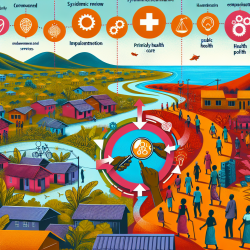The Covid-19 pandemic has exposed and exacerbated existing inequalities within societies worldwide. A recent study titled "Covid-19 in Unequal Societies?" sheds light on the heterogeneous effects of the pandemic across different socioeconomic strata in Bogotá. This research provides valuable insights that can be leveraged by practitioners, including those in the field of online therapy, to improve their services and address these disparities.
Key Findings from the Research
The study highlights significant epidemiological and economic disparities between high and low socioeconomic groups in Bogotá. People in lower socioeconomic strata are more vulnerable to infection due to factors such as limited access to financial markets, digital resources, and the ability to work from home. These groups also face higher infection fatality rates and economic losses compared to their higher-income counterparts.
The research utilizes a dynamic general equilibrium model integrated with a behavioral epidemiological model to simulate policy counterfactuals and assess the distributional impact of Covid-19. The findings reveal that while shutdowns have a limited epidemiological benefit, they impose significant economic costs, particularly on high-income individuals who rely heavily on capital income.
Implications for Online Therapy Providers
For practitioners providing online therapy services, such as TinyEYE, understanding these disparities is crucial. Here are some ways to implement the research outcomes:
- Tailored Services: Develop targeted interventions that consider the unique challenges faced by lower socioeconomic groups. This includes providing flexible scheduling options and ensuring access to necessary technology for remote therapy sessions.
- Community Engagement: Collaborate with local organizations and schools to increase awareness about available online therapy services. This can help bridge the gap for families who may not be aware of or have access to these resources.
- Cultural Competence: Train therapists in cultural competence to better understand and address the specific needs of diverse populations. This includes being sensitive to language barriers and cultural differences that may affect therapy outcomes.
- Policy Advocacy: Use data from studies like this one to advocate for policies that support equitable access to education and healthcare services for all socioeconomic groups.
Encouraging Further Research
This study underscores the importance of continued research into the effects of Covid-19 on different societal groups. Practitioners are encouraged to engage in or support further research efforts that explore innovative solutions for reducing disparities in health and education outcomes.
The findings from "Covid-19 in Unequal Societies?" provide a foundation for developing strategies that enhance online therapy services in a way that is inclusive and equitable. By implementing these insights, practitioners can play a pivotal role in mitigating the long-term impacts of the pandemic on vulnerable populations.
To read the original research paper, please follow this link: Covid-19 in unequal societies?










